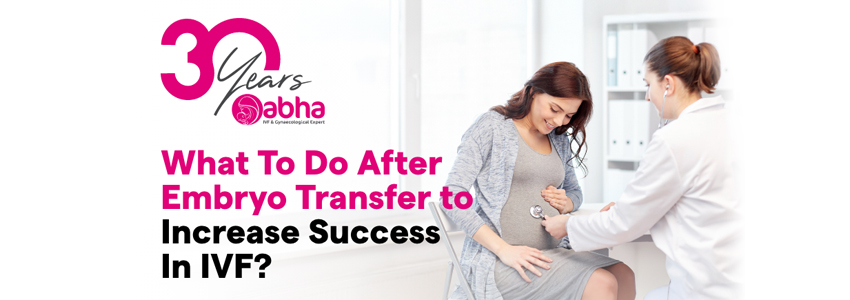

In-Vitro Fertilization, or IVF can be pretty expensive; hence, when you get viable embryos, it becomes necessary to implant these at the earliest. Once the embryo transfer is done, you must take precautions to ensure that it results in successful implantation and pregnancy. Here are some simple answers to the question: what to do after embryo transfer to increase the success.
Once the embryo is implanted, the blastocyst begins to hatch out of the shell. As the blastocyst begins to hatch out, it will adhere to the uterine wall. The first two days after embryo transfer, the blastocyst hatches out of the shell and implants on the uterine wall. After that, it will continue to implant further into the uterine wall for the next two days. It takes five days after the embryo transfer for the implantation process to be completed. Thus, you must follow certain precautions after embryo transfer to ensure a successful pregnancy.
To ensure a successful pregnancy after an embryo transfer, you must follow all the precautions the doctor suggests. After a successful embryo transfer, you must wait for at least nine days to show high hCG levels. When you take a pregnancy blood test after nine days, high hCG levels will indicate a successful pregnancy. This means the blastocyst has successfully hatched out of the shell and adhered to the uterine walls. Once the embryo transfer is done, you must take the medications on time and avoid rigorous activities to ensure a successful pregnancy.
The embryo transfer process is not a painful one and rarely does it require the use of anaesthesia or sedatives. However, to ensure that the embryo transplant results in a successful pregnancy, you need the take the following precautions:
The success of an embryo transfer depends on the precautions that you take. You will find that it will make it easier for you to ensure a successful pregnancy.
You need to take certain precautions after an embryo transfer in IVF. If you are wondering what precautions should be taken after an embryo transfer in IVF, here are some of the simplest ones.
Thus, it takes time to ensure a successful pregnancy after an IVF. You need to be patient and relaxed. It is essential to allow the embryo transfer to work at its pace. So, it would be best if you pampered yourself, avoided strenuous activities, and took all the medicines on time to ensure a successful pregnancy after an embryo transfer.